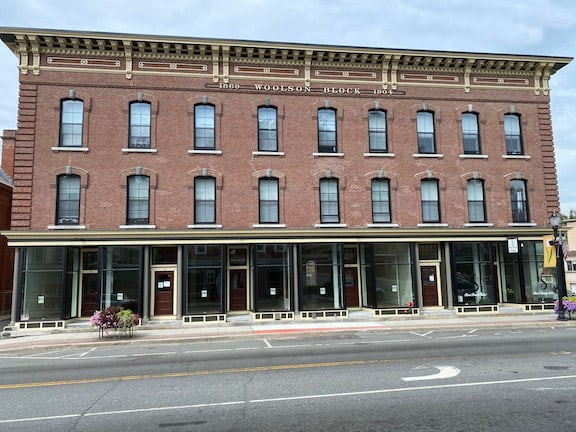
SPRINGFIELD, Vt. – Health Care and Rehabilitation Services and the Springfield Housing Authority have partnered with Windsor County Youth Services, Easter Seals, Springfield Supportive Housing, and the Vermont Agency of Human Services to create a unique transitional living program for young adults ages 18-24.
Individuals served by the program are those who have had difficulty finding affordable housing or gainful employment, anxiety about stepping out on their own, or who may have just needed support with the basic routines that come with independent living. The program builds upon the strengths of these young adults and assists them to take the next steps toward independence with an array of specialized vocational, wellness, mental health, and related services to meet their unique and evolving needs. Participants are connected with services from one of the partnering agencies and continue to receive supports throughout their time in the program.
This program, which operates under Vermont’s Youth in Transition program, hosts four efficiency apartments, with individual bathrooms, as well as shared living and common areas in the recently renovated, historic Woolson Block building located in downtown Springfield. A live-in resident manager is available to provide guidance and support supports residents. The goal of the program is for participants to graduate from the program within 9-12 months into a permanent housing arrangement within the community of their choosing and with full-time employment or full engagement in an undergraduate program.
“This is a much-needed program for emerging adults – providing a safety net so they don’t lose out on something as important as a place to live,” says John Baker, HCRS Youth in Transition case manager.
As part of the program structure, all residents are required to engage in “productive time” that supports their own goals toward independent living. This must include continued education and training and/or gainful employment, as well as other related wellness activities.
Jennifer Smith, HCRS Children Youth and Families Division director, states, “The collaboration came about in response to the fact that adolescents who are leaving DCF custody and/or leaving home frequently face a stark lack of support and guidance. Given the statistics about the struggles that these youth face – incarceration, alcohol and drug use, homelessness – it only makes sense to provide a structured and supported program in which youth are not only housed but also supported in connecting to their community at large. Assisting youth in gaining employment, securing adequate and permanent housing, and attending an educational program all have positive impacts on the social determinants of health and, therefore, help to ensure these young people transition into adulthood successfully.”
HCRS’ CEO, George Karabakakis, Ph.D., adds, “We’re thankful for the solid relationships we have with so many other organizations supporting the Springfield area. Programs such as this transitional living program for young adults can be successful when the entire community comes together to address an unmet need.”
Anyone with questions about this program or other transitional age youth programming at HCRS can call 855-220-9429 for more information.